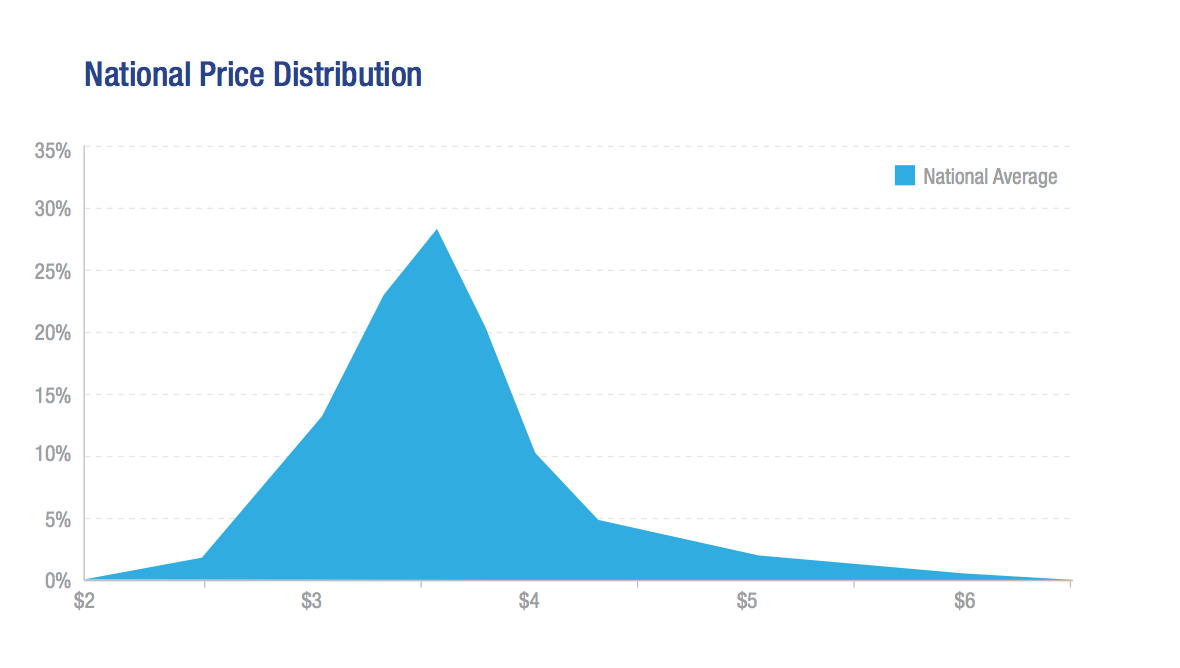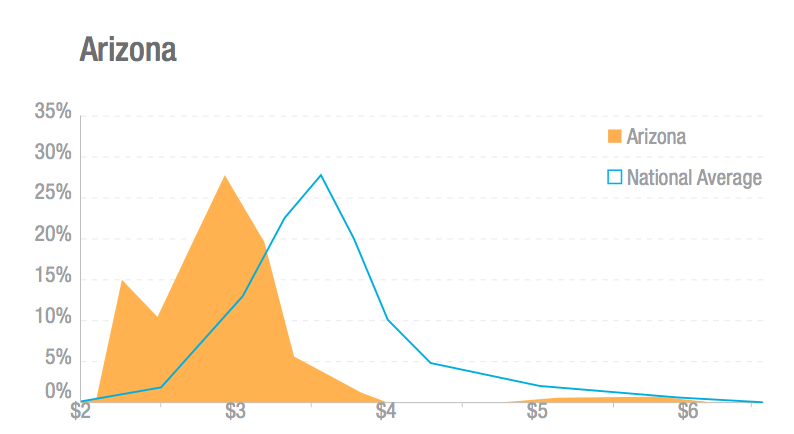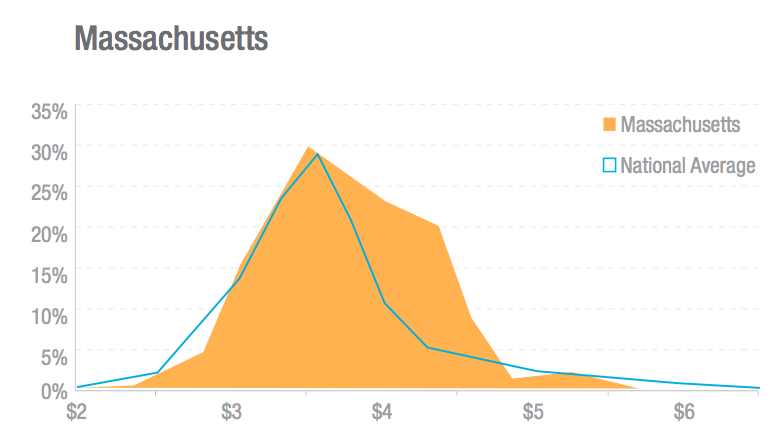
Well, the correct answer to that question is “it depends”. A photovoltaic solar system can cost as little as a few hundred dollars or as much as millions of dollars.
Here is a quick table that shows the 2016 distribution of residential solar quotes submitted to EnergySage.

As a rule of thumb, it is safe to assume that on average a 7.6 kW grid-tied system (national average system size) will cost about $25,500 ($3.30/W) before incentives and tax credits, depending on the size of the project and the types of materials used. This cost includes solar panels and balance of system (inverters, cables, disconnects, etc.) as well as labor and permitting.
The cost of grid-tied systems can range widely state to state and is influenced significantly if energy storage is incorporated. As you can see below, Arizona tends to represent residential quotes well below the national average. By comparison, the bulk of quotes in Massachusetts fall within the average distribution with a trend towards above average prices.


A typical U.S. home is 2,300 sq ft in size and uses about 1,000 kWh of electric power per month. The cost of electricity is 10 cents per kWh on average (but can be as high as 24 cents or as low as 7 cents depending on the state). The average location in the U.S. has about 5 hours of solar resource. This means the average needs to generate 1,000 kW of power to offset their $100/month electric bill. Given that an average home has access to 150 hours of solar resource per month (5 x 30 days), in order to generate 1000 kWh per month, a typical house would have to install a (1,000kWh/150hrs) 6.67kW solar system.
What if the homeowner wants backup power? The cost of adding a battery backup system is dependent upon system size and battery chemistry. You also need to factor in charge controller(s) and a battery inverter/charger. Use of a 600V Schneider charge controller is one way to keep BOS costs down. Using our estimates above, a typical U.S. household would require approximately 30 kWh of energy storage capacity per day. In reality, this number will increase once the designer factors in the depth of discharge calculations and the desired days of autonomy. As a rule of thumb, standard sealed lead acid batteries cost about $200/kWh, advanced carbon lead-acid batteries about $500/kWh and lithium-ion closer anywhere between $500-$1000/kWh.
As systems decline in cost the proportion of systems owned by homeowners themselves has steadily increased. Paired with net metering, time of use or tiered rates structures, or performance-based incentives loan products are becoming the standard to finance a residential PV purchase. For more information on loan products, you can visit the Finance section of our website.
__
